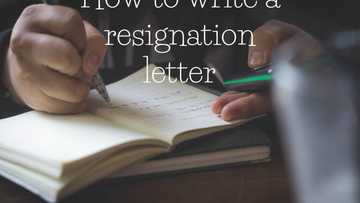How to write an informal letter
When it comes to correspondence, we all remember Specific rules used all over the world while writing letters. Even friendly documents have requirements. So, how to write an informal letter? What is this type of letter? We would like to list the main requirements and tips for correct informal letter writing along with some examples.

It is easy to complete everything quickly and in the best way, after you recollect the main set of rules.
What is informal letter?
Many of us choose different types of letters to complete everyday tasks, and formal and informal letters are two of the most popular formats. They differ from each other, and you should not use a formal format when you really wish to write a casual document.
Before we get to the part on how to write a letter, it is necessary to explain what informal letter is. Usually, such personal documents are written to friends, families, and people you love and care about. Such letters are meant for those people with whom you have personal relationship with, so you can use friendly tone, while formal letters are created for business purposes and require a professional attitude.

Informal letter format
Each letter you are about to write has to be formatted the correct way. When it comes to writing informal letters, you need to remember how to write down the recipient’s address, greetings, use the right format, and sign your document.
Each informal letter includes some important elements you will have to remember:
- Correct address
- Date when your document is written
- Greetings and opening
- Body or main part of your informal letter
- Closing
- Your signature
Knowing all the fragments of the letter is still not everything you need when you wish to create one. Every element has additional requirements for correct letter writing.
Main features of the informal tone:
- Usage of idiomatic phrases
- Many short forms such as we’re, don’t, there’s
- Usage of active voice
- Colloquial words
- Informal phrases
READ ALSO: What is informal letter and formal letter difference?

Letter writing tips
Finally, it is time to learn how to write a letter, each part of it. Then we would show you an example of an informal letter to help you complete yours.
Writing an address
Each document begins with the address. It usually finds its place at the upper right part of the document. It is your address, and it is added to help your recipient respond to you.
Of course, if you send a letter by post, it will contain both addresses (yours and recipient’s) on the envelope. Many people who receive informal letters throw away that envelope, so having your address written on the top of the page will let your recipient reply to you by post as well.
The example of the address:
Street name, apartment/house number
City, state, zip code
Country

Writing the date
Usually, this element is located under the address. You can place it in the format like day/month/year. You can write down the date using just numbers or capitalize the name of the month.
For example, you can write down 10 June 2018 or use this scheme 10/06/2018.
Writing the opening
It is necessary to start your letter with greetings. If you are writing an informal letter to your real friend, you can write something like ‘Dear Jane,’ ‘Hi Jane’ or simply the name of the recipient. This will be enough.
However, if you are writing to a family’s friend or relative you are not in a friendly relationship with, you need to use such informal abbreviation as Mr, Ms or Mrs.
Greeting should be followed by an opening phrase. It can be something like how are you, I hope you are well, etc.
An example of opening:
Hi Jane,
How are you?

Writing a body
This is the main part of your informal letter. It should be friendly and you need to use the language your friend or relative understands.
You can write whatever you want. You can describe your life, explain the reason why you are writing this letter, ask questions, tells an interesting story from your personal life, ask your recipient about his or her life, etc.
You are also advised to invite your recipient response to your letter and write an informal one for you.
Writing a letter closing
This is the last major element of your document. It is the conclusion to your letter, which summarizes and end it.
For example, you can use the following phrase:
- I send all my love to you.
- My kindest regards.
- I’m really looking forward to hearing from you.
- My sincere regards to your daughter (or add the name).
- I cannot wait for your reply.
Writing a signature
This is probably the easiest element. It is only your farewell note (kindly, cheers, love, best, etc.) plus name.
For example, it can sound like ‘Have a great day, Angela’ or ‘Sincerely yours, Angela.’
This is it. You have learned how to write an informal letter, so you can start working on one now and send your friends or family a friendly note written by rules.
READ ALSO: How to write an application letter for a teaching job in a secondary school
Source: Legit.ng






